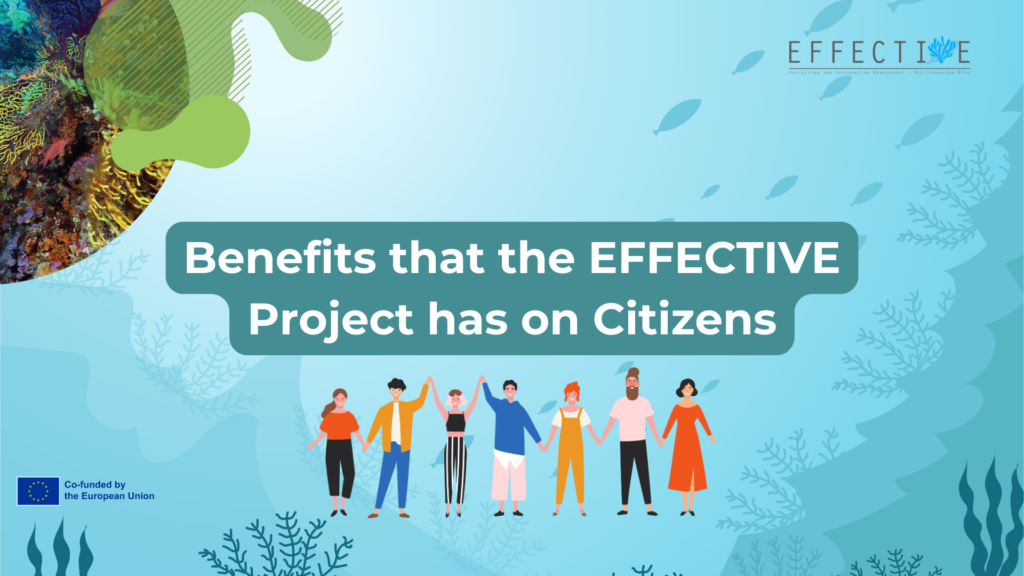
The EFFECTIVE Project brings significant benefits to local communities, enhancing their well-being and fostering a deeper connection with the marine environment. By increasing ocean and biodiversity literacy, involving citizens in conservation efforts, and linking local actions to broader EU policies, the project empowers individuals to play an active role in protecting and preserving marine ecosystems.
Enhancing Well-Being
Participation in the EFFECTIVE Project contributes to the overall well-being of local populations. By engaging with marine conservation efforts and benefiting from improved local ecosystems, community members experience healthier environments that enhance their quality of life and provide numerous recreational and economic opportunities.
Boosting Ocean and Biodiversity Literacy
The project increases ocean and biodiversity literacy among local residents. Through educational initiatives and awareness campaigns, citizens gain a better understanding of marine ecosystems, the species that inhabit them, and the importance of conservation efforts. This knowledge empowers them to make informed decisions and support sustainable practices.
Raising Awareness About Actions and MPAs
The EFFECTIVE Project raises awareness about the importance of Marine Protected Areas (MPAs) and the actions needed to protect them. By understanding the role of MPAs in conserving marine life and maintaining ecosystem health, citizens are more likely to support and engage in conservation activities.
Linking to EU Policies
The project connects local actions with broader EU policies on marine conservation. This linkage helps citizens understand how their efforts contribute to regional and global conservation goals, creating a sense of purpose and alignment with larger environmental strategies.
Providing a Voice in Conservation Efforts
Local populations have the opportunity to provide input and voice their support for MPAs through the EFFECTIVE Project. This involvement ensures that community perspectives are considered in conservation planning and decision-making, allowing citizens to influence and endorse initiatives that impact their local environment.
Increasing Ecosystem Services
By participating in the project, communities benefit from increased ecosystem services, such as improved water quality, enhanced fisheries, and more resilient coastal environments. These services contribute to the well-being of local populations and support sustainable livelihoods.
Enhancing Socioeconomic Benefits
The EFFECTIVE Project enhances socioeconomics for specific sites and populations by supporting sustainable practices and conservation efforts. This improvement can lead to better economic opportunities, such as eco-tourism and sustainable fisheries, that benefit local communities and create long-term prosperity.
Engaging in Citizen Science
Citizens have the chance to take part in citizen science activities through the project. By contributing data and observations, local residents play a crucial role in monitoring marine environments, documenting issues, and supporting scientific research that informs conservation strategies.
Documenting and Communicating Local Marine Life
The project encourages citizens to document their living area and marine-related life aspects. This documentation allows them to communicate their observations, compare experiences with other areas, and highlight local environmental issues. By sharing their findings, citizens contribute to a broader understanding of marine ecosystems and promote community engagement.
Addressing Ecological Problems
Local populations can document and report ecological problems and environmental issues through the EFFECTIVE Project. This involvement helps identify and address challenges facing marine environments, ensuring that conservation efforts are targeted and effective.
The EFFECTIVE Project empowers local communities by enhancing well-being, increasing ocean and biodiversity literacy, and fostering active participation in marine conservation. Through their involvement, citizens gain valuable knowledge, contribute to scientific research, and play a key role in shaping a healthier, more sustainable future for their local marine ecosystems.

